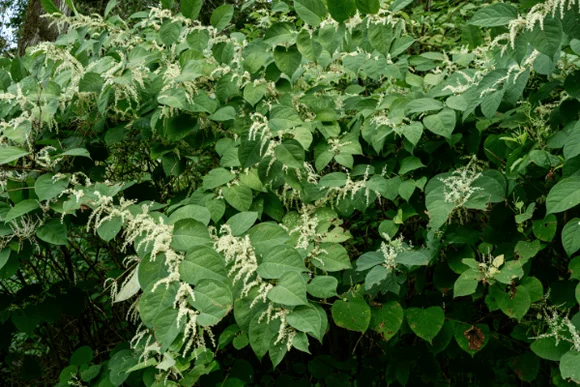London Homeowners Sue Surveyor for Failing to Spot Knotweed Infestation

A property owner in London was recently awarded tens of thousands of pounds in compensation after filing a case against a chartered surveyor who failed to detect the presence of Japanese knotweed in his garden.
Not only did the homeowner sue their surveyor for the costs of eliminating the knotweed from their property, but also for subsequently improving their garden and for the inconvenience and disruption they endured.
The ruling, which is likely to send shockwaves throughout the UK’s chartered surveyor community, was reached when evidence was presented that the property owner was not alerted to the presence of Japanese Knotweed when they purchased their ground-floor flat in 2014. The invasive plant was apparently not picked up on by the chartered surveyor, though it was spotted a year later by the complainant’s gardener.
A more detailed inspection conducted by specialist knotweed removal company Environut found that the plant was present in at least three places in the garden and had clearly been there for three or more years. The homeowner had to pay the bill to have the knotweed removed, which in total cost him more than £10,000.
A prolific and problematic plant
Japanese Knotweed has the potential to wreak havoc on all types of homes and gardens, with properties in London in particular known for being at risk to the invasive plant species. When new shoots of Japanese Knotweed are spotted, they can quickly grow to heights of more than 200cm and create an extensive root system underground.
This can lead to extensive damage to patios, pathways, fences, and drives. It can even find its way into the foundations and wall cavities of homes, putting the structural integrity of the property at risk.
When Japanese knotweed was detected at the site of the London Olympic Games, it ended up costing more than £70 million to fully remove it.
For homeowners affected by Japanese knotweed, the risk goes far beyond the potential for extensive structural damage. If the knotweed subsequently escapes the property and poses a threat to any surrounding gardens or homes, those affected can take legal action to recoup the costs of removing it and repairing the damage caused.
The importance of declaring and dealing with knotweed
Declaring the presence of Knotweed on your property can have a negative impact on your home’s market value but is nonetheless essential to do at the earliest possible stage. The earlier problems with Knotweed are addressed, the higher the likelihood of successfully removing every trace of it from your property.
“Even when treated, there’s still a risk; valuers will say there is a residual diminution of the property of two to five percent,” commented Nic Seal from Environut.
He went on to say that the average cost for removing Knotweed from a property in London is around £2,500 for treatment with herbicide, or anything from £5,000 to £10,000 to dig it out in its entirety.
Meanwhile, RHS chief horticultural adviser Guy Barter commented on the possibility of digging it out without hiring a contractor if you are not planning to move home anytime soon.
“It’s evil stuff. It’s a lot of work and not feasible if there’s a vast infestation, but you can dig it out with a spade,” he said. “Because it’s classified as ‘controlled waste’, you can’t let any plant material leave the garden. So stack it up to dry on plastic or concrete, and then burn it. Or put it in rubble bags and leave it to die for a few years, to be sure.”
